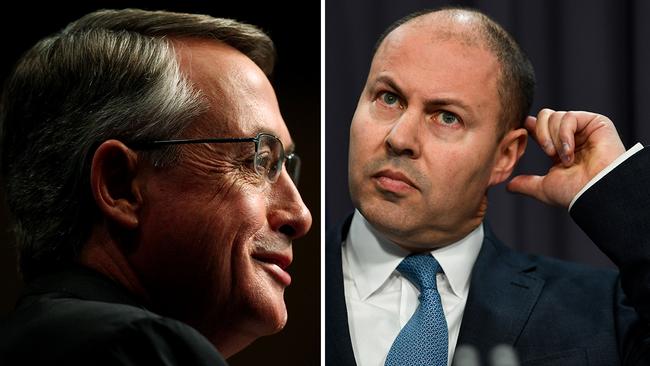
While furrow-browed press gallery journalists pretended plausibility for a while, it was only months before the ruse was over and in that financial year, a full electoral cycle beyond the GFC, Swan chalked up another $20bn in his run of deep deficits.
When Josh Frydenberg delivered his first budget in April last year his opening line was uncontentious. “Tonight, I announce that the budget is back in the black,” he said, detailing a $7bn surplus seemingly chunky enough to absorb contingencies.
Journalists who, to be fair, had every right to be sceptical after Swan’s failures and Joe Hockey’s strife in delivering budgeted policies, questioned Frydenberg’s announcement.
Channel Seven’s Mark Riley said: “But Australians have had surplus promises before, as you know, and they just haven’t materialised. Why will yours materialise?”
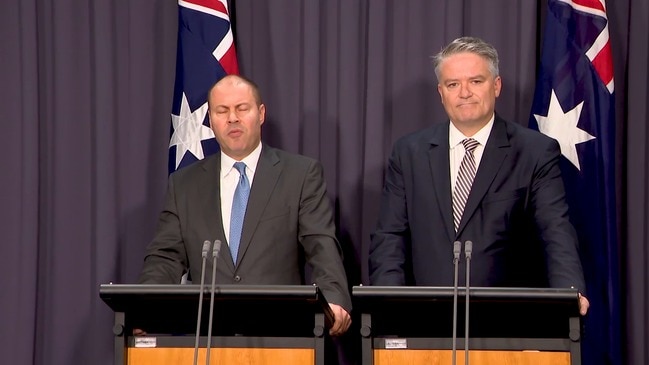
David Speers, then with Sky News, presciently mentioned unpredictable downside risks such as a “collapse in China” that could threaten the surplus.
Speers went further.
“So, you’ve said Australia is back in the black, but we’re not quite yet, are we? We might be in surplus next year, but it hasn’t actually happened yet,” he asked.
Budget assumptions should always be scrutinised and budget assessments will be largely coloured by the perceived quality of forecasts.
While it is true to say you cannot confirm the reality of the fiscal achievement until the final budget outcome is delivered more than a year later, the budget is far more than a prediction of the ledger — it is a detailed package of spending and revenue raising measures that provide a vast array of services and it will be calculated to produce a certain bottom line.
While the surplus or deficit is not delivered, per se, in the budget, the strategy, involving extensive decisions, calculations and costings, is delivered in minutia.
It ought to be evaluated and criticised but not dismissed on a whim.
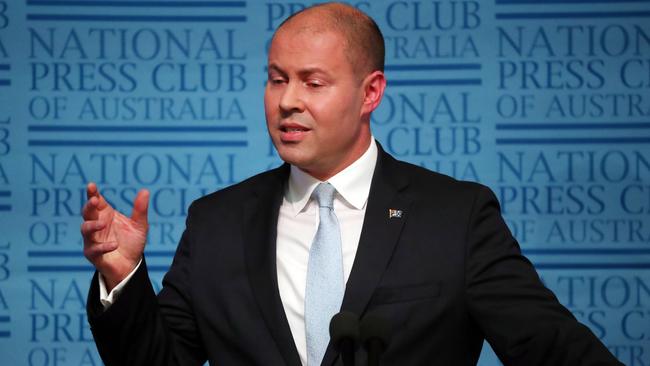
Which is why Waleed Aly’s approach in Nine Newspapers last week was odd, suggesting the Morrison government’s “back in the black” pronouncements were “designed to disguise a promise as an achievement.” He also tried a false equivalence with Swan, suggesting his surplus announcement was destroyed by the GFC — not so; it was made four years after that crisis hit.
If the Coalition does not deliver a surplus in the current financial year, seven years after coming to power and promising to fix the budget, it will be a political embarrassment. Yet serious commentators and taxpayers would be likely to cut Frydenberg considerable slack given the global shock of the coronavirus and its impact on tourism, education, trade, markets and confidence.
Media approaches to forecasting and delivery can be quite malleable, depending on the party and ideological drivers on either side of the undertaking. This played out over the space of just a minute on Radio National last Wednesday.

RN Breakfast host Fran Kelly was interviewing regular guest David Crowe, of Nine Newspapers, and asked about the surplus. “I think almost all hope of the budget surplus is gone,” said Crowe, “I think it is very close to line ball if not small numbers in deficit, and I think that’s what the government is preparing the people of Australia for at the moment. They can’t say it yet because they don’t have the Treasury modelling from the Treasury officials, and because it’s so hard to predict what’s happening with the coronavirus around the world.”
“Will it matter politically, David?” asked Kelly. “I think it will matter politically,” said Crowe, “because there’ll always be a political argument, given that this Coalition has since 2013 warned about debt and deficit disasters. So that’s their own rhetoric and they’ll be judged by their rhetoric.”
The GFC hit the 2008 budget like a bat out of hell and led to deliberate deficit budgets in following years. But Swan’s infamous announcement of four surpluses was in 2012, when he clearly recognised the budget needed to be back in black. Crowe continued the comparison as he discussed the Coalition’s challenge this year.
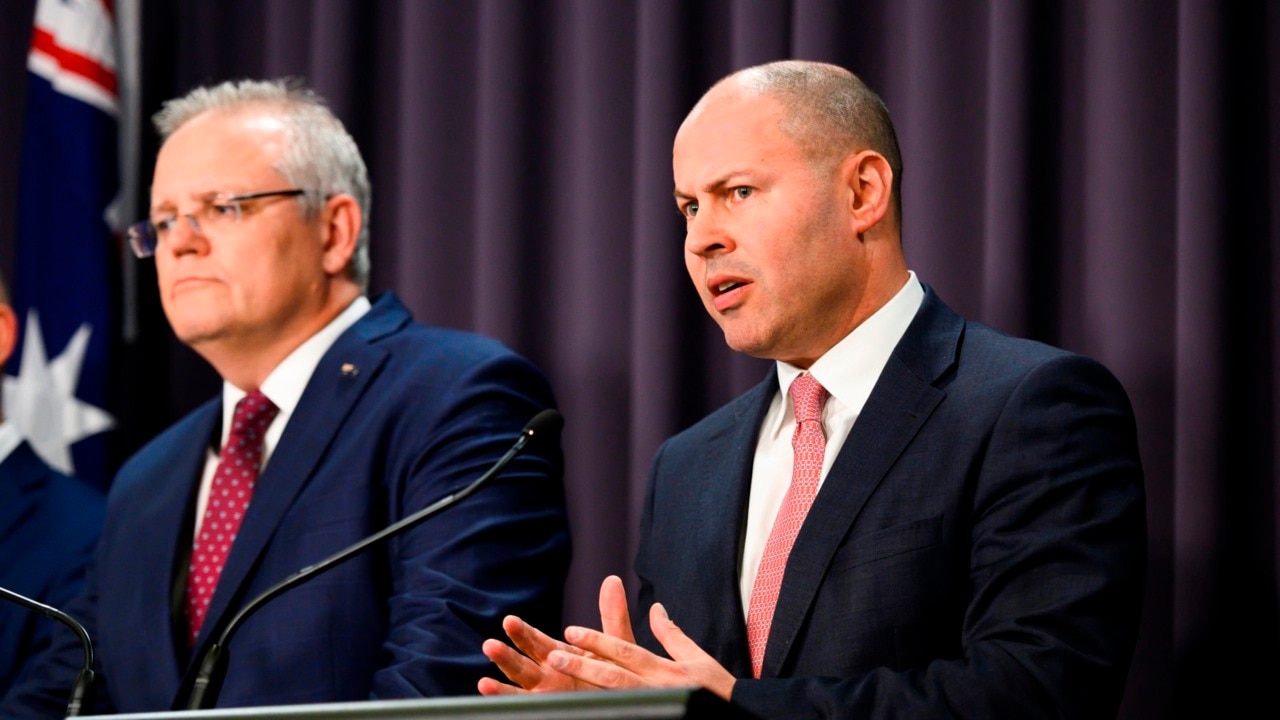
The RN Breakfast host then turned the discussion to the ABC’s favourite topic — climate change, raising the net zero by 2050 emissions reduction target on the back of Malcolm Turnbull’s latest Green New Deal endorsement. “(The moderate Liberals) speak up every now and then and we know that they’re not objecting in any way to the idea of net zero by 2050,” Crowe said. “However, I think, yes, Malcolm Turnbull does need more of those moderate Liberals to speak up because in his speech yesterday to a group of real experts, economists in the energy sector and so forth, nobody there was saying net zero’s really difficult. It’s going to be this huge problem for the country. Most people can see the economics of the energy sector changing, changing in a way which makes net zero by 2050 quite possible, in fact probably the outcome.
“So the weight of opinion at the moment is pretty much against the government’s, you know, very strong, this sort of sense of alarm you get inside Parliament House about 2050 and net zero, and you don’t get that alarm in the business groups that are talking about this, apart from a couple, sure a couple, but not most of them, and so I think Malcolm Turnbull’s speech is quite well timed to sort of ginger up those moderates.”

It is weird, or perhaps enlightening, that Kelly and Crowe assume that Turnbull, no longer in parliament. “needs” the Liberal moderates to do anything. Do they believe Turnbull is trying to use the Liberal moderates to impose climate policies now that he declined to attempt while he was prime minister?
But the revelation here was the astonishing about-face from Crowe on the fraught business of economic forecasting. In one breath he speaks of the political difficulties emanating from a 12-month budget forecast hit by the unforeseen impact of the coronavirus; the next, he is telling us that a historic, complex and costly global transition to a new net-zero carbon emissions economy, that will require undertakings and yet-to-be-detailed plans, developments and reforms in countries and industries across the world over the next three decades, no matter what events happen along the way, is not only “quite possible” but “probably the outcome”.
Kelly didn’t disagree with this bold forecast. Neither of them seemed to realise the stark contrast and intellectual inconsistency in their approach to these different economic targets. I predict they never will.



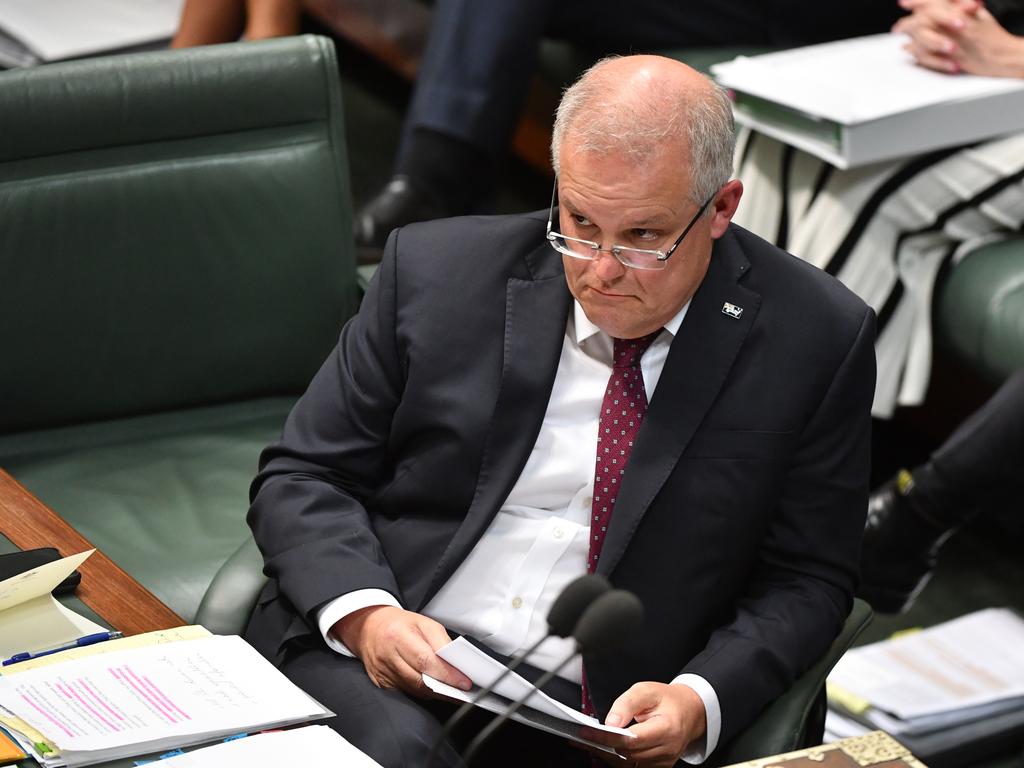
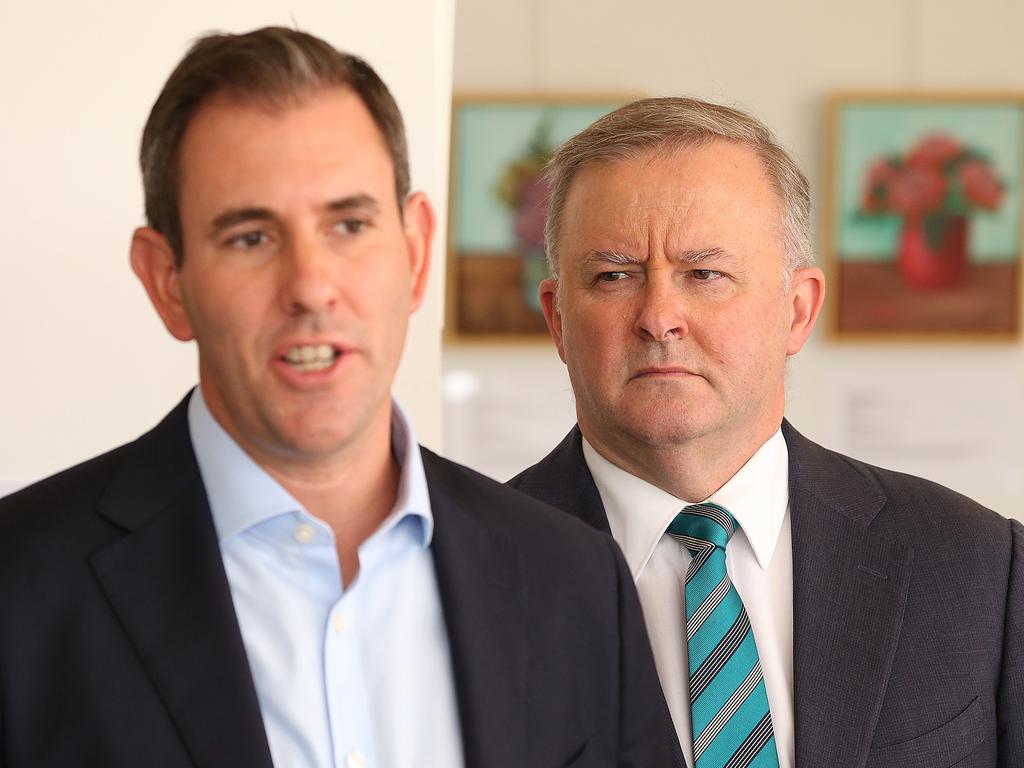

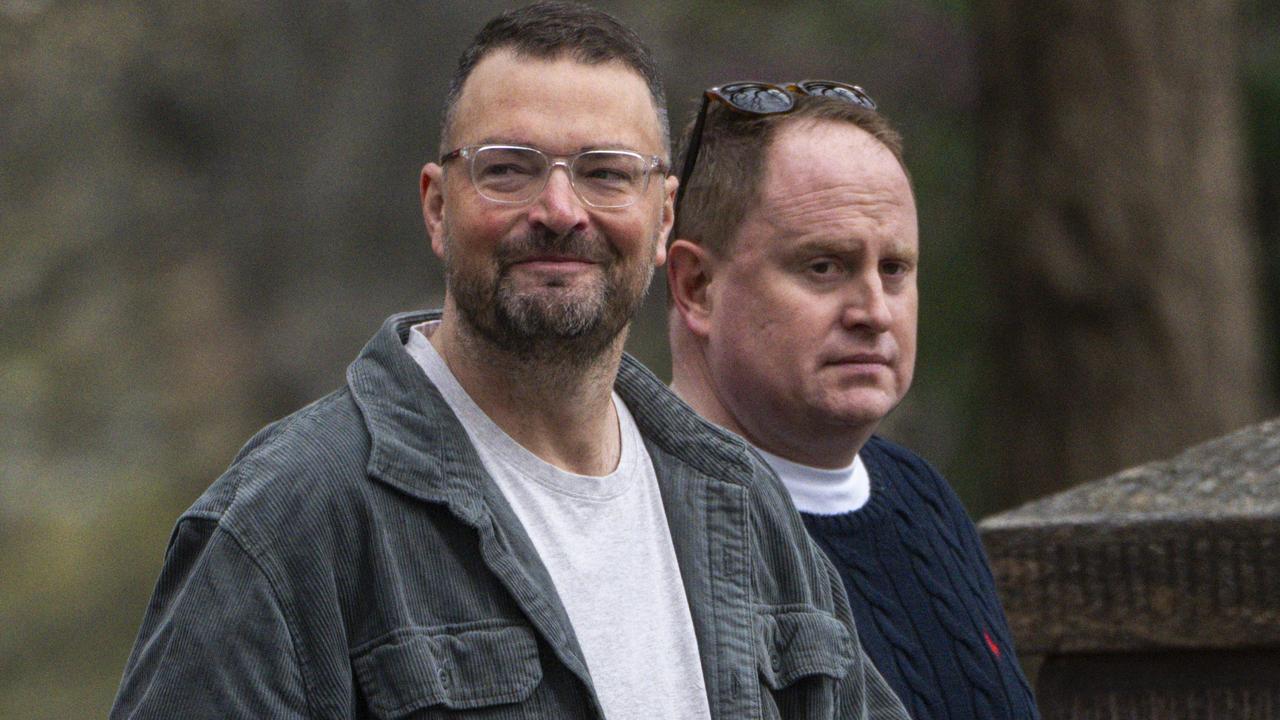
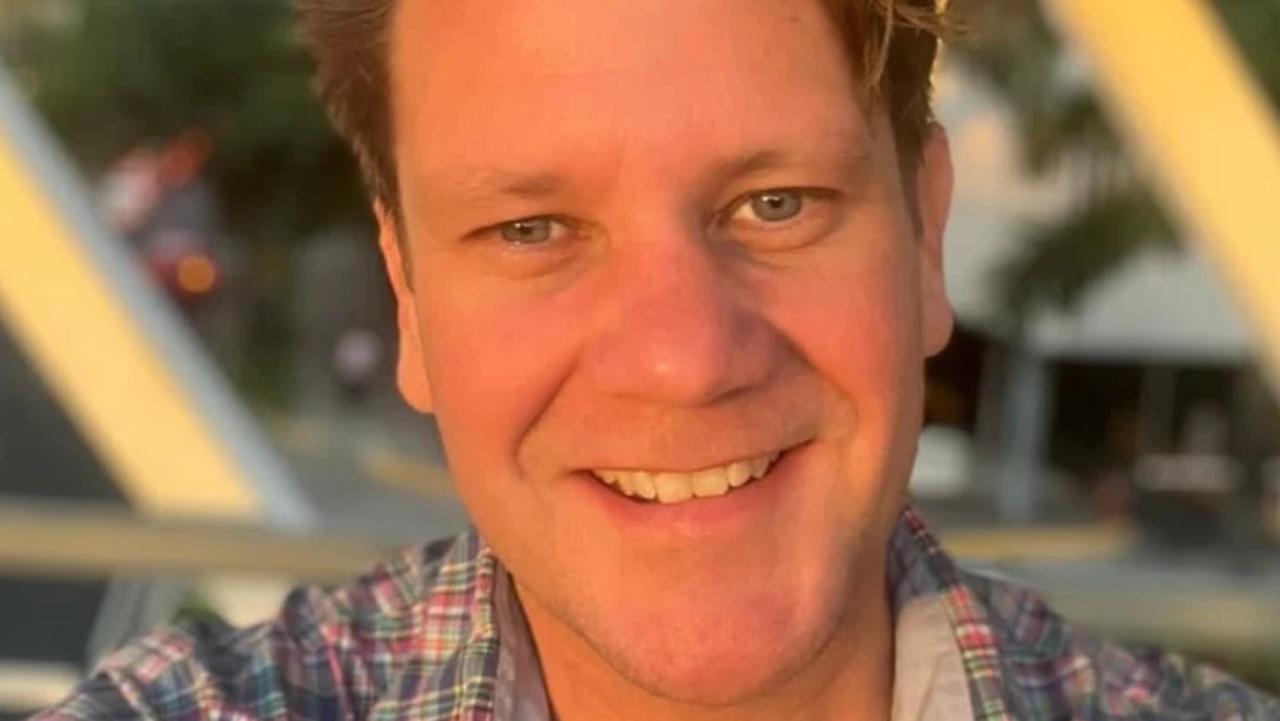
When Wayne Swan stood up on budget night in May 2012 his opening line brought the house down. “The four years of surpluses I announce tonight,” he said, as the House of Representatives erupted into laughter.